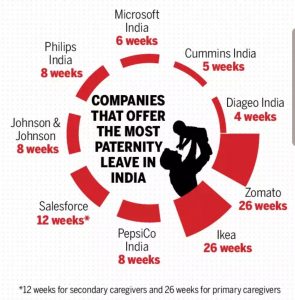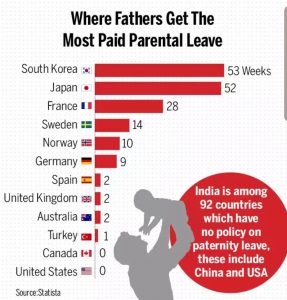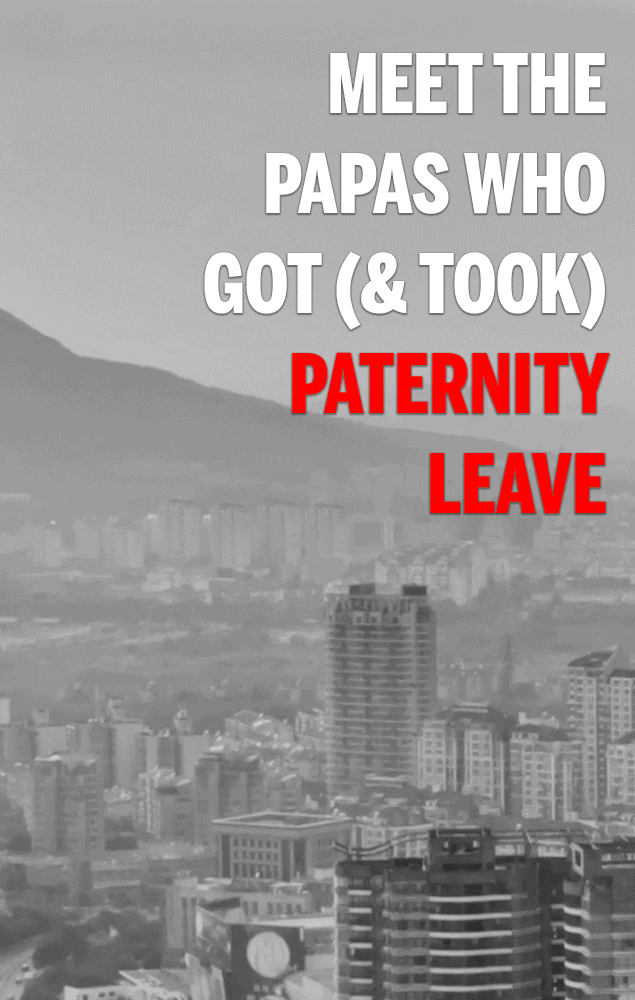Kehair is not only one of those new-age dads who doesn’t shy away from changing a poop-filled diaper, he’s also lucky to work in a company that gives paternity leave. Zomato’s recent announcement that it would give 26 weeks of parental leave to both male and female employees created quite a stir because most Indian companies don’t offer the facility, let alone such a long break. It’s only a few progressive multinationals like PepsiCo, Microsoft, Ikea, Cummins, Salesforce and Philips that have paternity leave.

But having it and getting men to avail of it are two different things. A new study across seven countries by US-based organisation Promundo revealed that less than half of men took the full paternity leave offered after birth. In the same survey, 86% of Indian men said that changing nappies, bathing and feeding children were the mother’s responsibility. “In India, paternity leave is not fully utilised and availed of simply because of lack of understanding and responsibility sharing for the child, fear of losing out on an appraisal or promotion, and job insecurity,” says Ajay Shah, head, Recruitment, TeamLease Services.
But dads, especially in nuclear families, are becoming more aware of their responsibilities, says Rakhee Kapoor, author of Expecting Daddy Delivers. “Earlier, men were not allowed to get involved. The pregnant woman was sent to her mother’s house for the delivery and was kept distant from the husband,” she says. But now from being in the labour room to feeding, diapering and staying up at nights, papas are doing their share of parenting.
When Sameer Mahuli became a dad in 2010, he surprised everyone in his family by taking leave for 10 weeks. Many relatives asked him why he was risking his job and found it hard to believe that the company would even approve such a long leave. “I wanted my wife to have a complete support system for everything from food to planning. We had also decided that we only wanted to have one child and would give it the best,” says Mahuli, who is now the CEO of gaming company Underdogs.

Mahuli says those first few weeks not only helped his wife recover faster, but also helped him forge a much stronger bond with his daughter. “It isn’t just transactional. Right from changing diapers to understanding the baby’s gestures, which few fathers get, I could relate to my wife and kid in a deeper way. I could even put her to sleep better than my wife,” he adds. “Had it been possible, I would have taken a much longer leave.” Yet, he admits that bringing up baby is definitely tougher than working in an air-conditioned office. “Work gives you momentary happiness while the baby gives a wonderful smile that’s more long term.”
More flexible parental policies also help fathers such as Gurugram-based Kousik Saha, an associate director at PepsiCo, who is availing his parental leave of 12 weeks in various stages as per his wife’s needs. Saha contrasts this experience with his first child’s birth in 2008, when he was off for just a week. “It was an injustice to my family and my wife,” he says.

Aron calls for a more inclusive official parental policy from the government, which is “supported by conversations, acceptance towards fathers who want to take paternity leave, and extending crèche facilities to male employees.”

Nala, an IT professional, also took the decision to opt for a night shift so that he can be at home in the day when his wife rejoins work. “Even a father needs to know what a mother goes through,” Nala says. “It seems easy and beautiful from outside but it isn’t. Living with kids and being with kids are two different things.”
How Paternity Leave Helps
* A recent study in Sweden, which gives new parents 16 months of shared leave till the child is 12, showed that even a month of flexible parental leave can make a significant difference to mothers’ postpartum health
* A new study of seven countries by US-based Promundo shows that less than half of men took the full paternity leave offered after birth.
* A study in Spain showed that men who opted for paid paternity were less likely to have another kid as spending more time with children may have made men aware of the cost and effort of child-rearing. Meanwhile, women went back to work after birth earlier and took less unpaid leave

